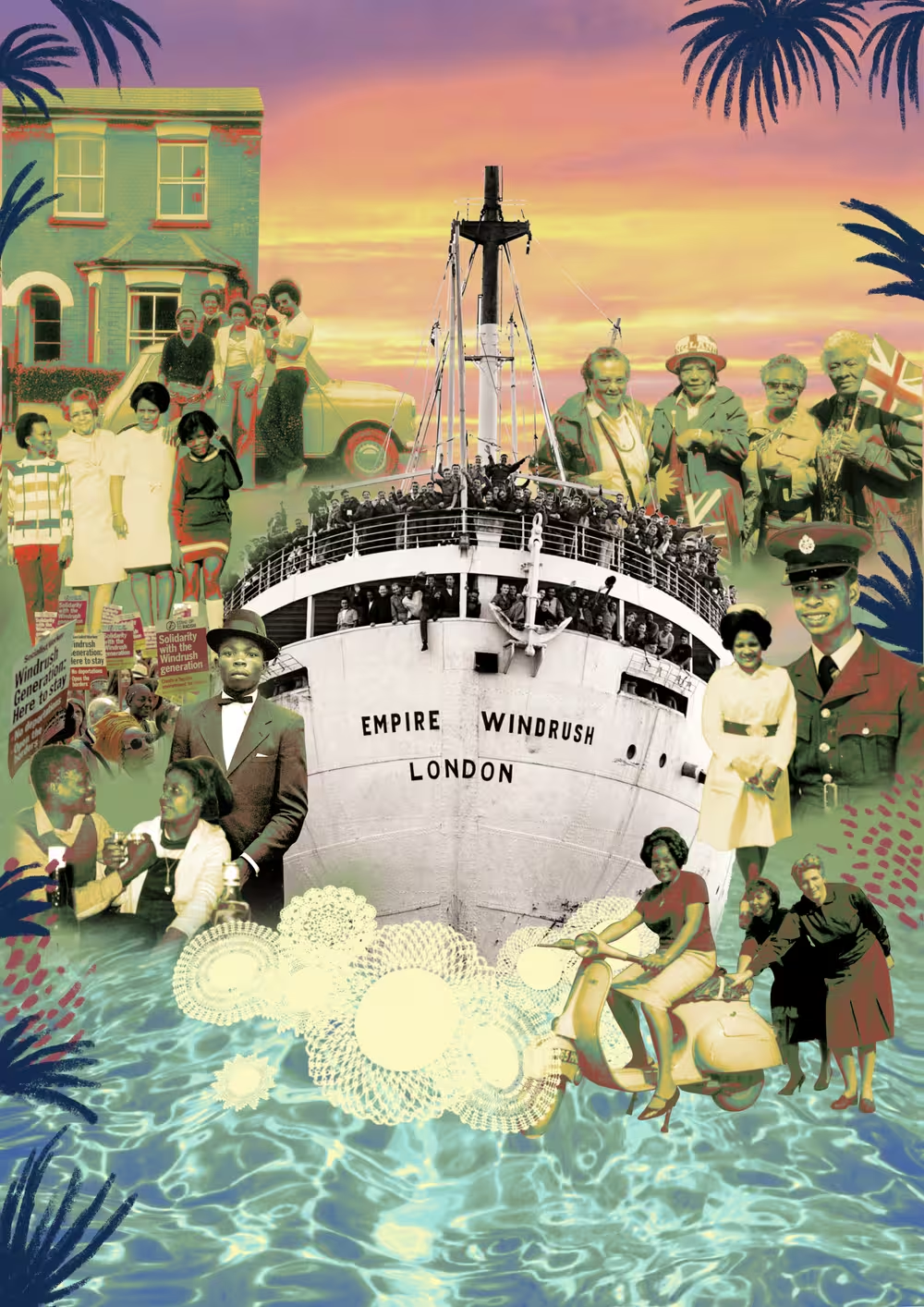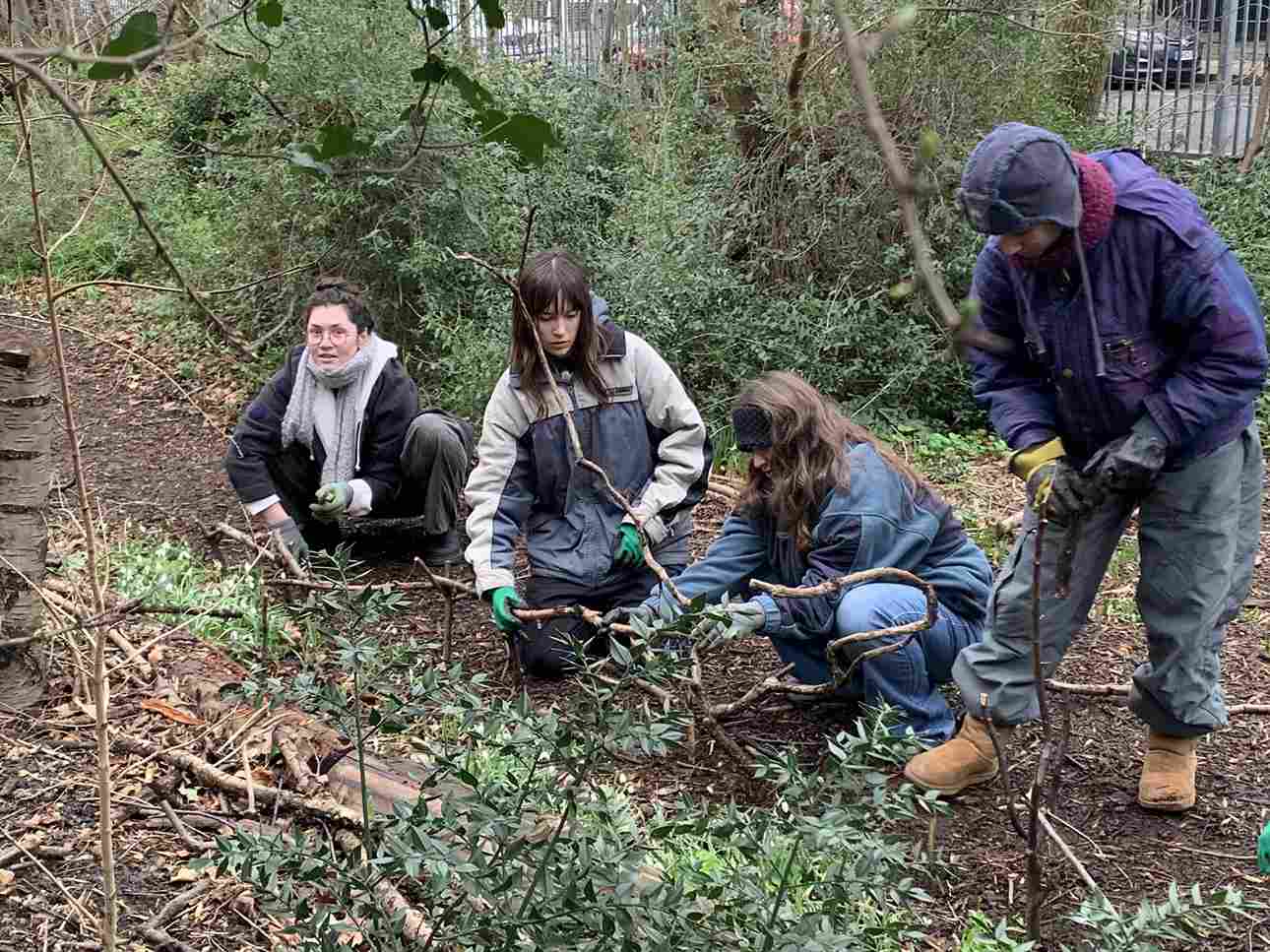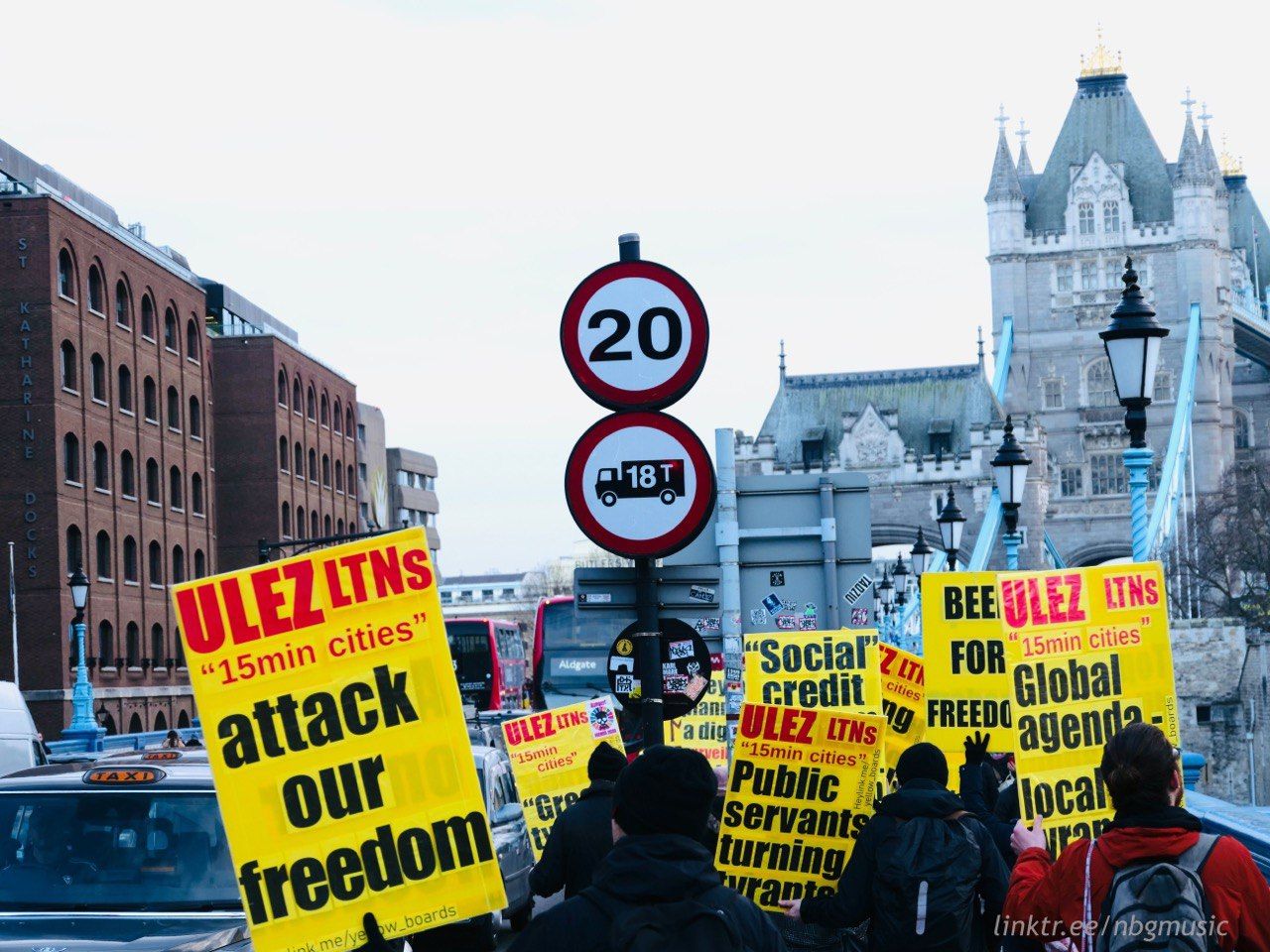
Caribbean Belonging and the Windrush Generation

Summary
Caribbeans making up just 1% of the population and impacting the lives of others , yet nothing being said in relation to their belonging is concerning. Being taught that England is your mother country, yet question if you belong is quite interesting, right? The Windrush generation being the catalyst to Caribbeans in the UK, reflects the emergence of a battle of realities, shaped by tragic lived experiences within the UK. Britain's impact on them provides clarity to how they had lost sight of how to navigate a damaged Britain, not knowing whether to assimilate or integrate into British society. Ultimately, leaving Caribbeans of today to question what Caribbean identity is, being proactive in searching the answer to this.
Approach and Methodology
I began with assessing language. Patois being an unofficial language, yet spoken so frequently in my North west London [My home borough], triggered me to think about how impactful Caribbeans truly are. This made me take a step back and realise my mothers impact on making me know my Caribbean roots, which shaped the foundation of my Caribbean identity.
My Qualitative method went about with providing perspective. As Close reading revealed the ambiguity of Caribbeans pre & during the Windrush era. Close reading Lord Kitchener's - London is the place for me gave me a massive insight into what Caribbeans expected to experience in the UK, more specifically “London”, illuding to the idea of their place of belonging. My Quantitative method explored the truth behind the governments approach to solving the problem, with the data justifying any claims of insufficiency in doing so. This made me understand the story which data can tell, shaping a fixed perspective to a problem.
I looked at data from the Windrush compensation scheme, to be aware of the governments approach of compensating Caribbean’s who were ill-treated. I developed an understanding of the complexity of the compensation scheme, providing context to the data at hand. This made me gauge with the complexity of a system that seeks to compensate both Financially, but emotionally, with the objective to reinstate the identity of those who questioned their sense of belonging.
My Disciplinary perspectives were Anthropology to assess the cultural impacts of Caribbean people in shaping their own identity in the UK. Political sciences in assessing and creating a navigation of the political implications relating to Caribbean people in the UK. Lastly, Linguistics aided in assessing language associated to Caribbeans in the UK, but also helped to shape how language creates clear distinctions for those within society.
My process developed with an understanding of the problem becoming more secure. Widening my depth of knowledge, aligned with my experience as a Jamaican in London consistently intertwined, reassuring me of my development. When all of my disciplines and research began to feel that it was being narrated by the same person, made me realise how much of an interdisciplinary approach I took.
Proposal/Outcome
My product was an audio Therapy session which looked at the problems of being Caribbean in the UK today. The therapy session incorporates music into the way that the client [Lamar Miller] and the therapist create a common ground. The session explores themes such as stereotype threat, post-colonialism, The myth of Caribbean criminality & identity. It was concluded that the problem is on-going, with its importance being required more, as the Windrush generation are beginning to be deceased. It was also concluded that no matter how culturally inclusive communities may be, it does not justify the disconnect from belonging felt by Caribbeans.
Beyond Outcomes
I learnt how I am apart of a bigger picture. The foundation of a bigger picture to be exact. Being the resident Caribbean researcher at LIS has reassured me of my place of academic belonging. I’m proud to love the study of 1.0% of the UK population, because if not me who will do it? After nearly 80 years we [Caribbeans] are putting our stamp on British academia, relating our experiences to our work. That’s a beautiful picture I illustrated right Infront of you. All of this in just 7 weeks. Wow! Paul Gilroy would be proud!
Want to learn more about this project?



Overall LIS Journey
Outside of LIS, I have a massive passion for working with the youth. Having 2 years of experience working at a children's amusement centre was the foundation to me establishing my soft skills, with communication being a major development point during those 2 years. This played a massive role in me going to Morocco to do international volunteering, representing my home London borough Brent! Immersing myself in another culture was definitely an experience I’ll never forget, especially after having a personal tour of the Moroccan parliament. Experiences are something that I think you have gotten quite used to me loving. This is why after getting the opportunity to blend both my love for boxing and working with youth was a no-brainer. Running a 1-week camp for youth through the organisation Beyond the Bias was a chance for me to let my passion seem through all of what I do. Being a mentor has also made me have the chance to pay forward the assistance that I received/ still receiving from my mentors. Being a LIS student I think it is obvious that I wouldn't be tunnel visioned. Being the creative director of a poetry and spoken word organisation gives me a platform to be creative, whilst understanding the logistics behind what it takes to have a platform in the 21st century. #BoyfromBrent
About me

Lamar Miller is a trailblazer. Being the first in my family & local community to seize the opportunity's of education has shaped me to be a voice of change. Drawing attention to the problems within the Afro-Caribbean community, to give more exposure to how Academia can be shaped by niche lived experiences. As a creative writer & poet I use my work to reflect the emotional aspects to my life, with the intent to give exposure to the ‘Black British’ experience. Being a Sem-professional boxer provides me with a outlet to remain disciplined, but to also look after my mental health. No matter what Lamar Miller knows what's best for Lamar Miller.
.svg)
Other Related Projects
Back to the repository


- A Pilot Based on Heathrow's Sustainability Goals







